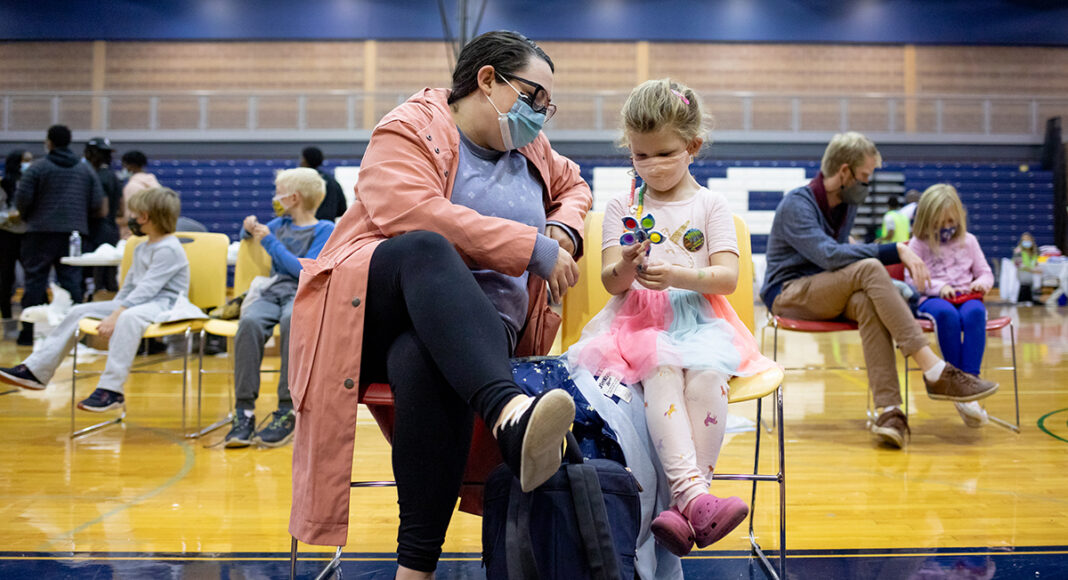By Sharon LaFraniere and Noah Weiland, The New York Times
WASHINGTON — In a striking reversal, federal regulators said Friday that they would wait for data on whether three doses of Pfizer-BioNTech’s coronavirus vaccine are effective in children younger than 5 before deciding whether to authorize a vaccine for the age group.
The Food and Drug Administration will postpone a meeting of outside experts that had been scheduled for Tuesday; the experts were to weigh the evidence and make a recommendation on whether to authorize two doses of the vaccine in young children, as Pfizer had requested.
In a news release, Pfizer-BioNTech said that their three-dose trial for young children was moving briskly and that the new timetable would allow the FDA to get more data and thoroughly review it. Results are expected in early April.
“Given that the study is advancing at a rapid pace, the companies will wait for the three-dose data as Pfizer and BioNTech continue to believe it may provide a higher level of protection in this age group,” the companies said.
At a news conference, Dr. Peter Marks, who heads the vaccine division of the FDA, said parents would have to wait another two months for a decision while regulators gather and analyze more data. “Yes, some of this was late breaking, but that’s what our job is — to adjust to it,” he said.
Regulators and vaccine manufacturers have been wrestling with how quickly to move to vaccinate roughly 18 million children younger than 5, the only Americans still ineligible for shots. The highly transmissible omicron variant is receding in much of the nation, but federal officials have said that nearly 400 children younger than 5 have died of COVID-19.
In Pfizer’s clinical trial, which tested one-tenth of the adult dosage in the youngest group, its vaccine failed to produce the desired immune response in children ages 2-4, producing only 60% of the level of antibodies identified for success, according to multiple officials. Children ages 6 months to 2 years produced the sought-after level of antibodies. There were no serious safety concerns, officials have said.
The FDA made the highly unusual decision to push for authorization with data from Pfizer-BioNTech on two doses, knowing the results the company had were mixed.
Tuesday’s meeting had been expected to focus on just how urgent the FDA and its outside advisers consider the need for vaccination to be in the youngest age group. The panel’s recommendations to the FDA are nonbinding, but the agency usually follows them.
Some infectious-disease experts have argued that the evidence showing a benefit from two shots is not convincing enough, given that omicron cases are falling and young children are unlikely to become severely ill from the virus. Pfizer-BioNTech is expected to deliver data on three doses by early April, and many experts predict that it will show better protection for that age group.
Others argued that the toll of the virus on children — even a smaller number of them — required the FDA to stagger its review process and possibly authorize at least initial doses before regulators determine the ideal regimen. Even if omicron is fading, they said, another variant could emerge as unexpectedly as omicron did in November.
Pfizer-BioNTech’s trial for children younger than 5 was not big enough to measure their protection against infection and disease. Instead, researchers studied the antibody levels that the vaccine generated, comparing them with an older group — ages 16-25 — that had received a higher dose with proven protection. The same strategy, known as immunobridging, was used to authorize the vaccine for older children.
Although Pfizer and BioNTech announced disappointing results for the immune response among 2- to 4-year-olds in December, they have also been gathering clinical data from children who became infected. Initial data suggested the vaccine lowered the rate of symptomatic infection, but the numbers were too small to be considered statistically significant. The data also suggested that two doses were more effective against the delta variant than the omicron variant.
This article originally appeared in The New York Times.













